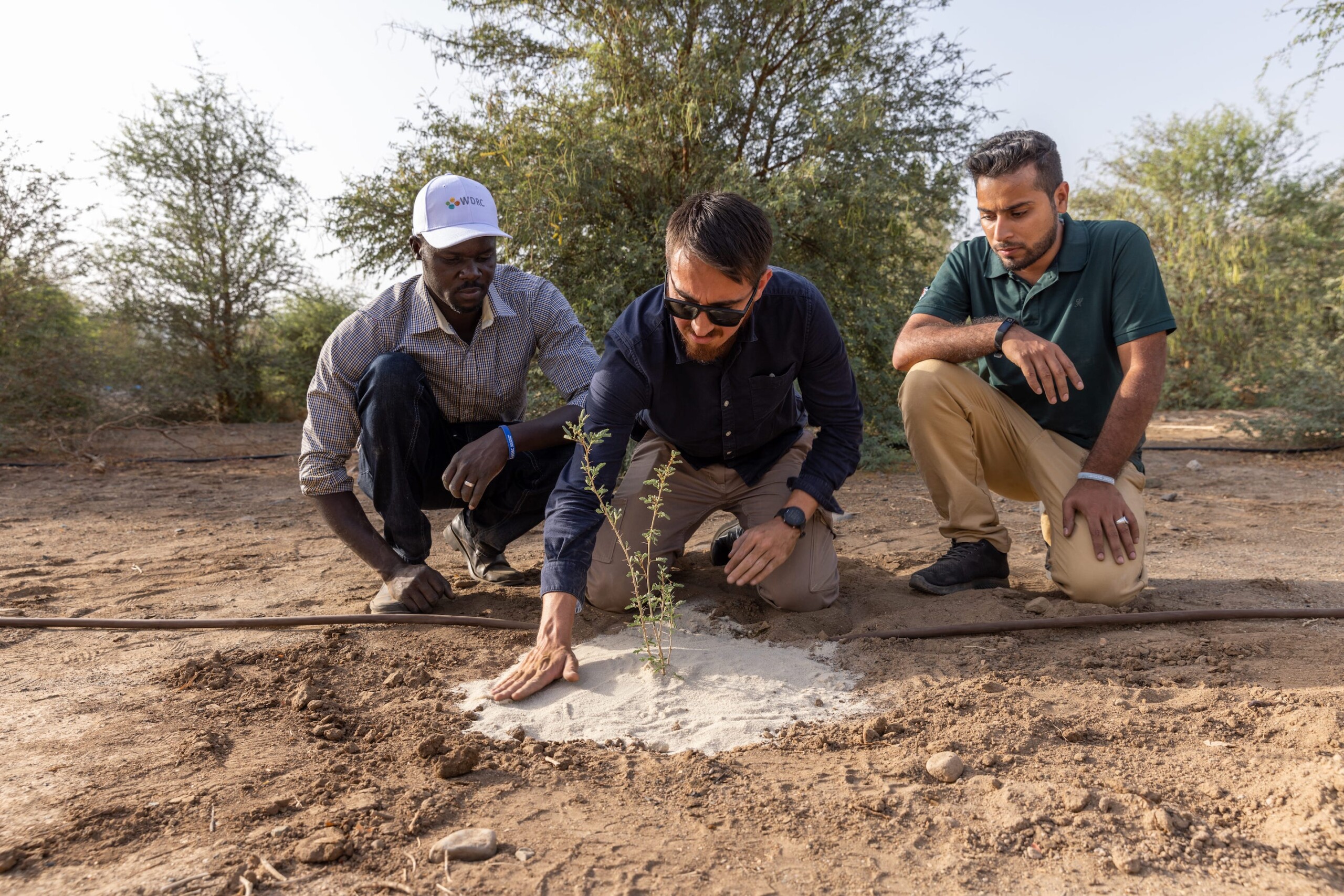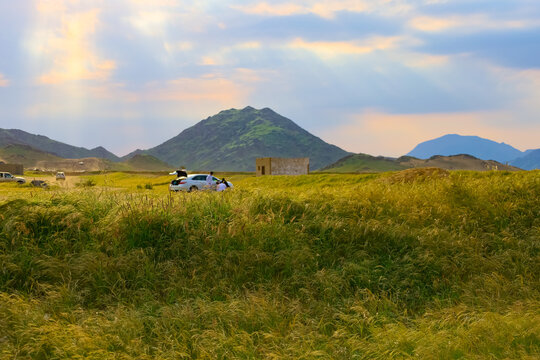“Terra preta,” or Indian black soil, is one of the greatest examples of good and sustained human meddling with nature.
Indigenous people in South America’s Amazon forests have intentionally improved the region’s poor sandy soil by adding charcoal, plant ash, food scraps, bones, and other organic waste to enhance its productivity and support agricultural communities. A study published in “Advances in Agronomy” documented this progress.
Through a scientific partnership between Brazilian chemical engineer Adair Gallo and Professor Himanshu Mishra, Professor of Environmental Engineering at King Abdullah University of Science and Technology (KAUST), this long-standing custom served as inspiration for Saudi Arabia.
After years of research and testing, Gallo partnered with Brazilian environmentalist Professor Mishra. During his training in California, America, Gallo, who was a part of the Brazilian “Science Without Borders” program, got to meet Mishra. Their shared interest in soil and water led to the establishment of an academic relationship that evolved into Terraxy, a startup that offers sustainable ways to enhance dry soils.
An Inventive Procedure
At Mishra’s request, Gallo relocated from Brazil to Saudi Arabia in 2016 to work at KAUST. Gallo started collaborating with Mishra on sustainable environmental materials projects during his master’s and PhD degrees, including soil remediation and enhancing the material’s resistance to adverse environments.
The team developed “wax sand” to address water loss in arid soils using local resources like sand and paraffin wax. Despite initial failures due to salty water, they eventually improved the product’s efficiency by overcoming obstacles and improving its ability to hold moisture and prevent evaporation. 
The study team discovered while working on “wax sand” that Saudi Arabia’s arid soil has little water and is drastically deficient in essential minerals, making cultivation impossible. This finding encouraged them to find innovative methods to increase the fertility of arid soils.
Gallo then considered taking inspiration from the “Indian Black Soil,” which was made by the Amazon’s native inhabitants thousands of years ago. It is a mixture of plant and animal excrement, and it contains organic components and minerals that have been found there.
With the aid of Mishra, Gallo modified it to fit the sandy alkaline soil of Saudi Arabia after learning about the chemical and biological characteristics of this special soil during his studies in Brazil.
The team created the novel bio-enricher “CarboSoil” from local organic waste, namely food scraps and poultry manure, which fertilised the sandy, parched soil and prepared it for farming.
In 2021, Gallo and KAUST recognised Carbosoial’s economic potential, particularly its alignment with Saudi Vision 2030 for sustainability. They launched Terraxy in 2022, which rapidly expanded, doubling Carbosoial’s manufacturing capacity to meet increasing demand.
A Breakthrough in Bio-Enhancement
The bio-enhancer “CarboSoil” originated via a novel thermal decomposition technique, according to the KAUST website to convert organic waste into nutrient-rich products while preventing full combustion.
Poultry manure, a rich source of nitrogen and one of the most plentiful organic wastes, was chosen as the first natural and renewable raw material for the production process. Poultry farming is a significant industry in Saudi Arabia, producing over 400 kilotons of manure annually, which is dumped in landfills. 
In addition to poultry manure, there are food wastes like fruit and vegetable peels, sewage treatment sludge that provides minerals and nutrients, and agricultural crop leftovers like straw and plant residues.
These materials are first gathered and handled to increase their homogeneity and eliminate contaminants. To enable thermal processing—which involves heating organic materials in a confined, oxygen-free environment to prevent full combustion—this stage involves drying and cutting the materials. The organic molecules break down into their most basic components as a result of the carefully regulated temperature, which is typically between 400 and 700 degrees Celsius.
The final step produces biochar, a carbon-rich substance used in the “CarboSoil” product. Adding organic compounds and nutrients from organic waste improves it, such as potassium and phosphorus, to strengthen the soil’s water and nutrient retention capacity.
Sustainability and Carbon Emission Reduction
In partnership with commercial partners such as Aramco Green Energy and the Nature Conservation Sector, the research team conducted field testing that resulted in the successful planting of over 60,000 native plants in NEOM.
As a consequence of collaboration between KAUST and the National Centre for Vegetation Development and Combating Desertification, the business also carried out a research study on 1.3 hectares to plant native trees in Wadi Qadeed National Park.
Gallo claims that the key to “CarboSoil’s” success is that it is more stable in the soil because it sits there for a long time and binds to nutrients, allowing for long-term benefits. This isn’t the case with other soil enhancers like algae or organic fertiliser, which break down in a year and release carbon into the atmosphere, and the region’s high temperatures hasten this process. “CarboSoil also helps increase water retention in sandy soils by 11% and nutrient retention by 53%,” he continues, adding that 73% of the product is still functional after 100 years, demonstrating its long-term advantages.
“CarboSoil” offers agricultural advantages and environmental benefits, according to Magdy Allam, Secretary-General of the Arab Environmental Experts Union and Global Environment Facility Consultant. It reduces the need for traditional fertilisers, contributes to environmental sustainability, and converts organic waste into valuable products.
The pyrolysis process is a crucial component in the manufacturing process, ensuring a reduction in carbon emissions and promoting sustainability. Allam adds that this process not only maintains soil fertility but also contributes to the reduction of the need for conventional fertilisers.
Read more: Seventy Projects in Saudi Arabia Use Sustainable Building Practices